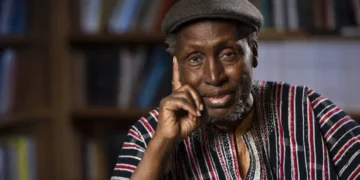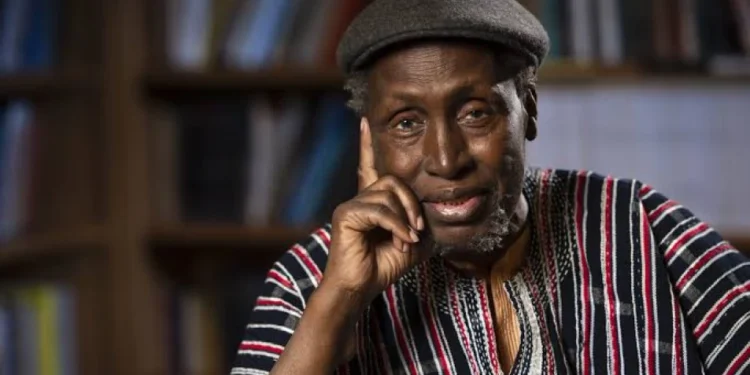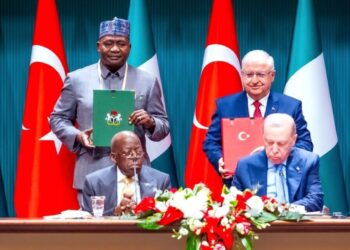By Ebi Kesiena
Kenyans are mourning the death of literary legend Ngũgĩ wa Thiong’o, who passed away Wednesday in Bedford, Georgia, at the age of 87.
A bold critic of authoritarian rule, Ngũgĩ’s fearless writings once landed him in prison, but also earned him enduring admiration as a voice for justice and cultural identity.
At Nuria Bookstore in Nairobi, a special shelf now stands in his honour, lined with his works. Long-time bookseller Bennet Mbata, who has championed African literature for over three decades, expressed deep sorrow at the loss. “He’ll never write again, and that leaves a gap in African literature,” Mbata said.
President William Ruto, in a tribute posted on X, described Ngũgĩ as “the towering giant of Kenyan letters,” whose work reshaped national conversations about justice and political power. “Even those who disagreed with him respected the sincerity behind his words,” Ruto wrote.
Ngũgĩ’s legacy is deeply tied to his political activism. In the 1970s, his piercing critiques of the government led to his detention and later exile. He survived two assassination attempts and spent years abroad, never silenced in his call for reform.
Renowned historian Macharia Munene remembered Ngũgĩ as a rare talent. “He wrote English like an African,” Munene said, noting Ngũgĩ’s eventual decision to write exclusively in Kikuyu to promote indigenous voices. Munene lamented that Ngũgĩ never received the Nobel Prize for Literature, despite his multiple nominations.
Opposition leader Raila Odinga also paid tribute, declaring, “A giant African has fallen.”



































